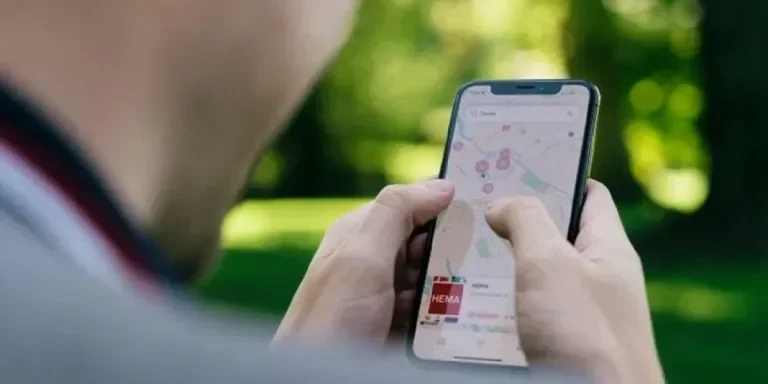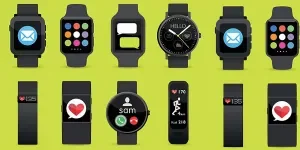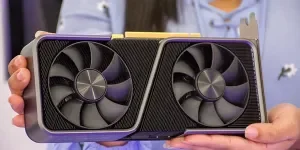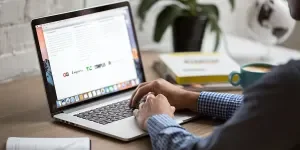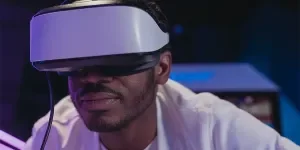A screen protector is an added layer of protection for iPhones. Although it doesn’t guarantee that your iPhone’s screen won’t break, it can prevent screen scratches, which can weaken the glass and cause cracks.
This article discusses ways to choose the right iPhone screen protectors for your customers to safeguard their phones.
Table of Contents
iPhone screen protectors: market growth and demand
Tips for selecting iPhone screen protectors
Other considerations for choosing iPhone screen protectors
Key takeaways
iPhone screen protectors: market growth and demand
iPhone screens are expensive and customers are reasonably cautious about screen damage. These people rely on screen protectors to keep their screens safe, increasing their demand.
That’s why, according to this study, the screen protectors market will have a compound annual growth rate (CAGR) of 6.8% from 2022 to 2030, with the Asia Pacific holding the largest share at over 35%.
The surge in demand for gaming phones that are prone to mishandling and scratches also fuels the market.
Tips for selecting iPhone screen protectors
There’s a constant demand for iPhone screen protectors because people will always try to keep their iPhones safe. Consider taking these tips to benefit your business.
Types of iPhone screen protectors
Whether your customers use an iPhone 14 Pro Max or anything below, the following types of screen protectors can be a perfect fit for their phones.
1. Tempered glass screen protector
Tempered glass goes through various thermal and chemical treatments to make it stronger. Tempered glass is also used to make safety glasses, car windshields, etc.
A tempered glass screen protector reduces glare by being anti-reflective. High-quality tempered glass transmits light well, resulting in a clear display. Also, it has the same look and feels as your iPhone screen, so you won’t even notice it.
A superior tempered glass screen protector example is the 9H hardness tempered glass. It comes with an oleophobic coating for fingerprint resistance. And a few of them come with easy installation kits and are clear enough to preserve your customers’ display brightness.
Belkin UltraGlass is just as good and two times stronger than tempered glass. It’s made of lithium aluminosilicate (LAS) glass, which offers more flexibility, strength, and scratch resistance for iPhone screens.
2. Polyethylene terephthalate screen protector
Polyethylene terephthalate or PET screen protectors consist of polyester film that has a matte coating on one side and silicone adhesive on the other.
High-quality PET screen protectors have anti-scratch features to help customers protect their iPhone screens. However, they don’t offer as much protection as tempered glass because they aren’t as thick.
3. Privacy screen protector
If your customer is private and doesn’t want people looking over their shoulder at their phones, a privacy screen protector is for them. It also helps keep iPhones in good condition besides defense against lurking eyes.
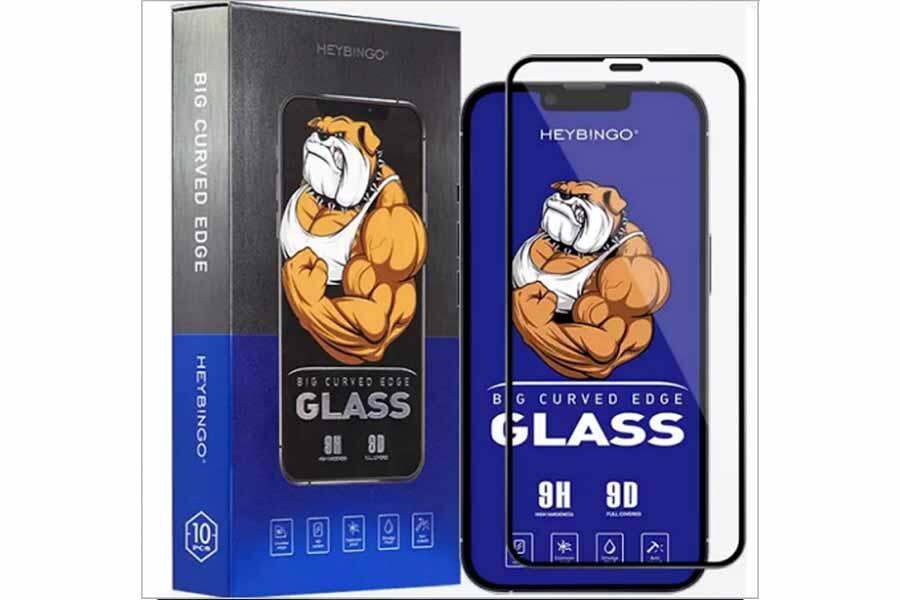
They come in tempered glass or PET plastic with an anti-spy layer that keeps your customers’ iPhone screens private.
4. Thermoplastic polyurethane screen protector
Thermoplastic polyurethane or TPU protectors are chemically enhanced and flexible plastics that can cover any phone edge to edge. Due to their almost rubbery plastic substance, they are flexible and tough.
TPU protectors have other properties that help them absorb non-extreme impacts without damage to the screen. They can also endure lighter drops and scratches.
5. Anti-glare screen protector
Anti-glare screen protectors are coated with a matte finish, which eliminates glare in bright areas of the screen. As a result, your customers won’t strain their eyes from squinting at the glare from their iPhones.
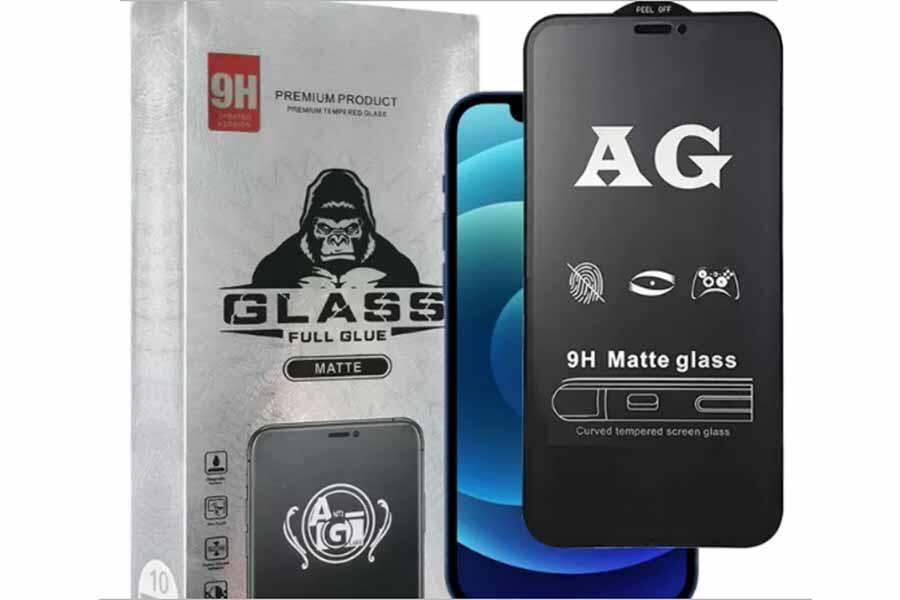
These screen protectors also come in plastic and tempered glass types that protect your customers’ screens from damage and reduce fingerprint marks.
6. Hydrogel screen protector
A hydrogel screen protector offers superior scratch resistance to PET screen protectors. It is elastic and does not crack easily. Although hydrogel screen protectors repair small scratches, they are tricky to install.
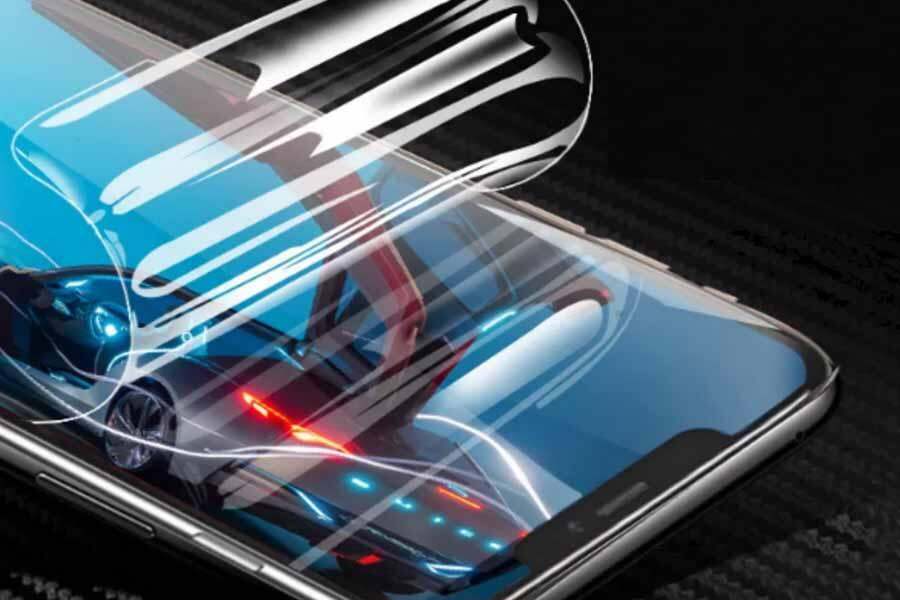
These protectors are thinner than normal plastic protectors and made of soft TPU or PET materials. In addition, they’re smooth, very transparent, and easy to clean, making them a great choice for customers.
Other considerations for choosing iPhone screen protectors
A screen protector is one of the most important phone accessories. To select the right ones, you need to know the features customers want and what types fit their lifestyles. This will inform your selection, help you optimize your marketing efforts, and increase your turnover.
Here are the other things to keep in mind to choose the right screen protectors for customers.
Customer preferences
The 9H hardness tempered glass is a great option if customers want better protection from cracks. But anti-glare screen protectors are for customers who are more concerned about reducing harsh reflections while using their iPhones outdoors.
Customers who want privacy when using their iPhones in public will benefit from the privacy screen protector. But if they don’t mind a full cover, they can opt for full-screen screen protectors to cover their entire screens.
If customers already own protective iPhone cases, PET screen protectors can provide an additional layer of scratch protection. TPU screen protectors, on the other hand, offer better impact protection with a smoother touch, making them ideal for people who do mobile photography because they fall and hold their devices constantly.
Lifestyle
Anti-glare screen protectors are suitable for customers who spend a lot of time outdoors. However, if they perform physical activities like sports with their devices in their pockets, 360-degree coverage screen protectors would be a better choice.
A hydrogel protector is appropriate for customers who keep their phones in their bags throughout the day because there’s a lower risk of a hard impact if they drop them.
Meanwhile, customers with sweaty and oily hands should use a screen protector with a hardness rating of 9H. Aside from offering protection, it’s resistant to sweat and oil residues, ensuring that these don’t affect their iPhone user experience.
Key takeaways
Virtually everyone carries a phone with them wherever they go. Even at home, they may accidentally drop them. Considering iPhone screens are expensive, it’s better to be safe than sorry.
Your customers need screen protectors that will protect their screens while matching their lifestyles and preferences. It’s up to you to use the tips in this article to increase sales by protecting their phone screens.
